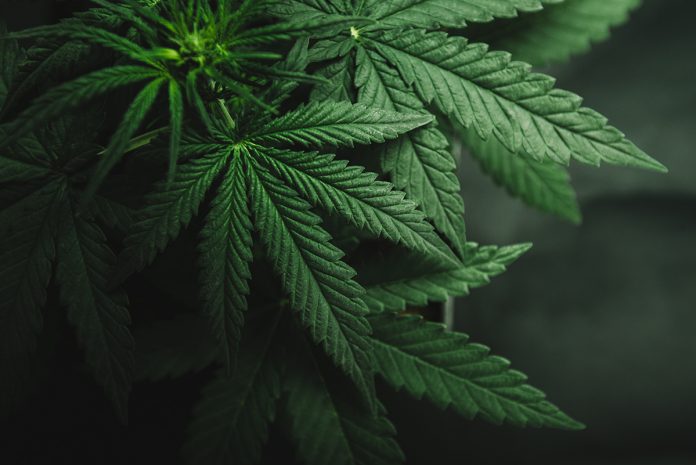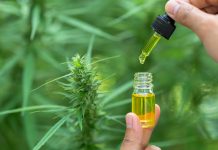Suzette Smiley-Jewell, PhD & Pamela J. Lein, PhD from the University of California, Davis, explore the extent to which animal CBD products are safe
If you own a dog, cat or horse, you have probably noticed the abundance of cannabinoid (CBD)-products flooding the market. Pet supply stores offer a variety of CBD-infused oils, edibles, topicals, and gels marketed to improve pain, anxiety, and/or immobility in dogs and cats. CBD products Kahm and Lame Away offered to equine owners for the same reasons.
Changing laws allowing the production and recreational/medical use of cannabis and findings that CBD can help with chronic pain, nausea, seizures and mood, sleep and eating disorders in humans is driving the market. Surveys have found that pet owners who use cannabis products themselves are likely to purchase CBD products for their pets. As a result, the global CBD pet market was valued at $125 million in 2020 and is predicted to expand at a compound annual growth rate of 58.9% from 2021 to 2028. However, controversy surrounds CBD animal products because there are no formally approved CBD veterinary medications, conflicting laws and limited scientific studies regarding therapeutic efficacy and safety in animals.
What is CBD?
CBD is a chemical found in flowering Cannabis plants, which have been used for thousands of years in rope, fabric, paper, food, and medicine (human and veterinary). Cannabis sativa plants having less than 0.3% tetrahydrocannabinol (THC; the “high” causing chemical in marijuana) by dry weight are legally defined as “hemp” in the U.S. and EU. CBD is abundant in hemp and not psychotropic like THC. CBD interacts with the endocannabinoid system, a signaling system in vertebrates and invertebrates that influences key biologic processes, such as inflammation, pain, sleep, mood, immunity, appetite, memory and brain development. Cannabinoid receptors are found throughout the body and brain, although their distribution can vary by species. CBD not only interacts with cannabinoid receptors but also other receptors (i.e., serotonin) involved in anti-inflammation, pain reduction, depression and anxiety.
Does CBD benefit animals?
Providing pain relief, reducing inflammation, and alleviating anxiety were the top three reasons people cited for purchasing cannabis pet products in surveys of U.S. and Canadian dog owner use and perceptions of cannabis products. CBD pet product websites and owner forums espouse anecdotal evidence for CBD health benefits; however, the number of actual scientific studies in companion animals is very limited, although steadily increasing since hemp has become legal to grow in the U.S. and EU.
Currently, there are only six published studies on CBD and pain relief in companion animals. All six studies were done in dogs with osteoarthritis, a common problem with older age and high body weight. In five out of the six studies, pain decreased and mobility improved. Such consistent results are notable because the studies varied by CBD form (oil or edible), dose (0.3 to 4 mg/kg), dosing regimen (once or twice a day) and length of treatment (one to three months). Side effects were relatively minor (e.g., sleepiness, incoordination), although with longer use, increased serum alkaline phosphatase, a marker of potential liver damage, was found. Similar feline and equine studies have not been done.
To date, there are no published clinical studies of CBD and inflammation in dogs and cats. However, because high performing horses are at increased risk for injury and inflammation, a well-controlled study of CBD metabolism and inflammation was conducted in thoroughbred horses. The horses tolerated CBD well and changes were seen in inflammatory signaling pathways. Therefore, the authors suggest further studies are warranted.
CBD animal products are heavily promoted as “providing a sense of calm”, “easing anxiety” and “reducing stress.” While CBD has been shown to reduce anxiety in rats, mice and humans, no published scientific studies are confirming the same is true in companion animals. Of the two published dog studies, neither supports CBD as anxiolytic. Dogs exposed to the sound of fireworks after receiving CBD for seven days did not have reduced anxiety, as indicated by their activity or cortisol levels, and shelter dogs receiving CBD had reduced aggression towards humans, but a similar response was observed in control dogs. To date, there are no clinical studies of CBD effects on anxiety in cats or horses.
There is also interest in using CBD to treat epilepsy in animals because CBD-based Epidiolex has been approved in Europe and North America to treat rare forms of human epilepsy. Reduced seizure frequency was found in two dog studies of the antiseizure efficacy of CBD, but the effect was inconsistent across all dogs.

Considerations: CBD animal products
Despite the high demand for CBD animal health products, they are neither regulated nor approved by the U.S. FDA, the European Medicines Agency or UK Veterinary Medicines Directorate/Food Standards Agency. As such, veterinarians cannot offer advice to clients unless permissible by local laws. For example, California state law allows veterinarians to discuss cannabis use with clients but other U.S. states forbid it. This can be frustrating for veterinarians and clients because of dosing, efficacy and safety concerns. For example, while CBD seems to be well tolerated by animals, it is not without side effects, including sedation, dizziness, confusion, excessive salivation or licking. There are species differences too, with dogs absorbing more and taking longer to eliminate CBD than cats and overall bioavailability increasing with fatty food or oil. CBD interactions with other prescribed veterinary drugs are not fully understood. Lack of product regulation was apparent in a study of 29 over-the-counter dog CBD products, which found that only 10 had CBD concentrations within 90-110% of the label claim and two had unsafe levels of arsenic and lead. Other studies have found high levels of pesticides used in marijuana fields in CBD products.
Conclusion
Without formal regulation of animal CBD products, we are stuck in a murky area where CBD is promoted to help animal health, but basic safety and efficacy data is limited or even non-existent. Greater oversight, increased studies, and more freedom for client-veterinarian communication would help everyone, most importantly the companion animals we love.
Please note: This is a commercial profile
© 2019. This work is licensed under a CC BY 4.0 license.
Contributor Profile
Contributor Profile
Editor's Recommended Articles
-
Must Read >> Can cannabidiol (CBD) treat Type 2 diabetes?
-
Must Read >> Researching CBD oil for depression
-
Must Read >> CBD for arthritis: What the research shows
-
Must Read >> CBD oil for ADHD: What the research shows

















